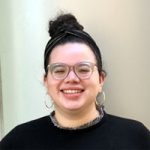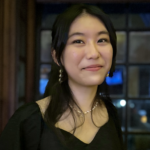
Daniela Čiháková, M.D., Ph.D., D(ABMLI)
Principal Investigator / Lab Director
Dr. Čiháková’s Johns Hopkins profile
Dr. Daniela Ciháková is Professor of Pathology at the Johns Hopkins University School of Medicine. She also has a joint appointment in the Department of Molecular Microbiology and Immunology. Dr. Ciháková is an American Board of Medical Laboratory Immunology (ABMLI) certified clinical laboratory immunologist and an Associate Director of Immunology Clinical Laboratory at Johns Hopkins University. Dr. Ciháková was named the new Deputy Director for Faculty Development.
Her research focuses on the cardiac immunology and understanding how immune cells and cardiac stromal cells contribute to the pathogenesis of various cardiovascular diseases such as myocarditis, dilated cardiomyopathy, pericarditis, myocardial infarction or check point inhibitors induced cardiac inflammation and congenital complete heart block. She also studies autoimmune disorders such as Sjögren’s syndrome, rheumatoid arthritis and gluten associated diseases in schizophrenia.
Dr. Ciháková earned her M.D. and Ph.D. from Charles University in Prague, Czech Republic. She completed her postdoctoral fellowship at Johns Hopkins University in 2006. Dr. Ciháková joined the Johns Hopkins faculty in 2008.
Dr. Ciháková research has been supported by the NIH/NHBLI, American Heart Association, Children’s Cardiomyopathy Foundation, W.W. Smith Charitable Trust, Mirowski Discovery Award, National Organization for Rare Diseases, American Autoimmune Related Disease Association (AARDA), Sjögrens syndrome Foundation, Matthew Poyner MVP Memorial Myocarditis Research Foundation and Myocarditis Foundation.

Monica Vladut-Talor, MSc.
Senior Research Specialist
Role: Manage, coordinate, and supervise the day-to-day operations of the research laboratory, in the Department of Pathology, JHU.
Conduct all sample processing for Epigenetic study in the Multi-Ethnic Study of Atherosclerosis (MESA). Participate in all aspects of the research lab, maintain budges, orders, contracts and renew all biohazard registrations and relevant protocols. Conduct all mice genotyping and oversee the management of the animal colony. Preform all assays involved in the Confirmatory Double blinded placebo-controlled efficacy Trial of a gluten-free diet in a subgroup of persons with Schizophrenia who have high levels of anti-gliadin antibodies.
Professional Training: MSc. degree in Microbiology, University of Ottawa, Canada, (1985). Joined the laboratory of Noel Rose at School of Public Health, Johns Hopkins University in 1987. Instrumental in obtaining the Clinical Laboratory License for the Immunologic Disorders Clinical Laboratory at JHU in 1988. Ran the CLIA and CAP certified Immunologic Disorders laboratory from 2008-2016 under the directorship of Dr. Daniela Cihakova.
Main interests: Contribute and support research in the laboratory with special emphasis in investigating autoimmune myocarditis and autoimmune thyroid disease. Help establish and participate in collaborative and ongoing studies within and outside of JHU. Perform, expand, validate, and collaborate to bring in-house a large repertoire of tests that help in the diagnosis and subsequent treatment of patients with autoimmune diseases.

Siddharth Patel, B.S., M.S.
Programming Analyst
Siddharth Patel graduated from the University of Delaware in 2023 where he earned a B.S. in Physics with a concentration in Astronomy/Astrophysics and a minor in Mathematics. The following year, 2024, he also earned a M.S. in Data Science. During his undergraduate studies, he participated in multiple data-driven research projects across different domains, such as sonification of supernovae light, and measuring residential/commercial light usage through Manhattan skyline imagery. After the completion of his Physics degree, Sid spent the summer at NASA Goddard Space Flight Center as a Computer Vision intern. At NASA he designed an image processing pipeline and prototyped an automatic image classification model to accelerate phytoplankton research. In February of 2025, he joined the Dr. Cihakova lab to contribute to their on-going research involving computer vision and image analysis.
Post-Doctoral Fellows

Robin Welsh, Ph.D.
Dr. Robin Welsh received her Ph.D. in Immunology from Johns Hopkins University in 2021. As both a Post-doctoral Fellow and Doctoral candidate she worked in the laboratory of Dr. Scheherazade Sadegh-Nasseri focusing on the in vivo roll of an MHC Class II accessory protein, HLA-DO, on CD4+ T cell development and activation. In particular, she was interested on what impact loss of HLA-DO had on regulatory T cells.
Dr. Welsh also holds an M.Sc. in Molecular biology and a B.A. in Biology from Smith College. Working with Dr. Steven Williams, she investigated genetic changes in the filarial nematode B. malayi during the transition from the mosquito vector to a mammalian host. In Dr. Čiháková’s laboratory, she will be attempting to induce a more regulatory immune environment in the heart during both EAM and viral myocarditis thereby lessening disease severity. “
Ph.D. Candidates

Camille Jaime, B.S.
Camille Jaime was born and raised in Manati, Puerto Rico. She graduated in 2020 with a B.S. in Microbiology from the University of Iowa. During her undergraduate studies, she worked in the lab of Dr. Ashutosh Mangalam, investigating the effect of high-fat diet and differing HLA mouse strains on the gut microbiota and their role in the onset of multiple sclerosis. She also contributed to the work of Dr. Larry Pease at the Mayo Clinic as a summer intern to develop an in-vivo CART cell mouse model.
Currently, she is a Ph.D. candidate in the Graduate Program of Immunology for the School of Medicine. Her focus in the Čiháková lab is to understand the minimum requirements for the induction of autoimmune disease in different myocarditis mouse models and to learn the surgical protocol for murine myocardial infarctions. In addition to autoimmunity, Camille has a passion for diverse representation in STEM and effective science communication. She hopes one day to be as cool as everyone else in the lab and to own a Pembroke Welsh corgi.

Ina Sulkaj B.A.
Ina was born in Albania. She graduated in 2017 with a B.A. with Honors in Neuroscience from Boston University. During her post-back she worked as a research assistant at Brigham and Women’s Hospital in the Transplant Department and at David H. Koch Institute for Integrative Cancer Research at MIT. During her time as a research assistant she worked in bioengineering the immune system to ameliorate transplant rejection and developing CAR-T therapies against solid tumors. She began her time at Johns Hopkins in 2021 as Ph.D. candidate in the department of Immunology. She joined Dr. Cihakova’s lab in May 2022 and has been working to understand the immune signaling involved in the differentiation of monocytes to macrophages following heart injury.
Master’s Candidates

Zhiwen Dong
Zhiwen graduated from Chongqing Medical University with a degree in Bachelor of Science in clinical pharmacy and finished one year’s clinical training rotation in Xinhua Hospital Affiliated to Shanghai Jiao Tong University School of Medicine. During his undergraduate studies, he investigated the role and mechanism of sialic acid in cardiovascular diseases in Dr. Limei Ma’s lab.
He is currently a graduate student in the Department of Molecular Microbiology and Immunology at the Bloomberg School of Public Health. Since October 2024, he has been focusing on cardiac immunology in Dr. Cihakova’s lab.

Wonyoung Jo, B.S.
Wonyoung Jo graduated with a B.S. with Honors in Bioengineering from Washington State University in 2022. During his undergraduate studies, he worked in the lab of Dr. Wenji Dong, investigating a paper-based nucleic-acid amplification (NAA) test for rapid diagnosis of COVID-19 infection by modeling cascading CRISPR reactions with artificial Y-shaped DNA. Currently, Wonyoung is a Master of Science student in the Biomedical Engineering Department of the Whiting School of Engineering and the School of Medicine. In the first year of his Master’s degree, he conducted research on SHAPR (SSB-Helicase Assisted Rapid PCR), a novel isothermal amplification method, in the lab of Dr. Taekjip Ha. His primary role in the lab was to standardize experimental conditions and design experiments to understand the mechanism of SHARP. He joined Dr. Čiháková’s lab in May 2023. His work in the Čiháková laboratory focuses on knocking out specific immune checkpoint inhibitors on T cells using CRISPR to study the effects of treatments on autoimmune diseases such as myocarditis in mouse models.

Noelle Sharath
Noelle earned her B.E. in Biotechnology from Ramaiah Institute of Technology, Bangalore, in 2024, where she conducted research on biofilm formation and drug resistance in Candida albicans. Her work, which integrated differential gene expression analysis, functional annotation and RT-qPCR validation, was recognized and funded by the MSRIT Alumni Organization for its contribution to novel therapeutics. Additionally, she gained hands-on experience in whole genome sequencing (WGS) analysis and microarray-based biomarker discovery during her internship at Bionome in Bangalore.
Currently, Noelle is pursuing a Master’s in Bioinformatics at Johns Hopkins University. Her research interests lie at the intersection of computational biology and molecular genetics, with a focus on leveraging in-silico approaches for drug discovery and precision medicine. At the Čiháková Lab, her research focuses on using scRNA-seq data to analyze immune checkpoints in myocarditis.

Vivian Sun
Vivian graduated with a B.S. with Honors in Immunology and Molecular Biology from the University of Toronto in 2024. During her undergraduate studies, she worked in Dr. Adria Giacca’s lab, where she investigated the role of Nod1 in insulin resistance and glucose intolerance induced by a high-fat diet. She also spent a summer as a research student in Dr. Fan Zhou’s lab at Tsinghua University, studying embryonic development markers in mouse at stages E4.5 to E7.0.
Vivian is currently pursuing a Master’s degree in the Molecular Microbiology and Immunology Department at the Bloomberg School of Public Health. In October 2024, she joined Dr. Cihakova’s lab, where her research focuses on the correlation between T cells and fibrosis in myocarditis, using mouse models.
Undergraduate Students

Shreyanshu Ray
Shreyanshu Ray is a current undergraduate student at Johns Hopkins University with a major in Biomedical Engineering and minor in Computer Science. He began his journey in scientific research under the guidance of Dr. Joshua Hutcheson at Florida International University. His work in the Hutcheson lab focused on a project that aimed to develop a method to quantify aortic valve strain values for mouse models. Currently, in the Čiháková Lab his work is focused on the role of different cytokines in the pathogenesis of specific inflammation and autoimmune diseases, such as myocarditis, induced in mouse models.

Bianca Kolim
Bianca Kolim is an undergraduate student at Johns Hopkins University majoring in Molecular & Cellular Biology with a minor in Computational Biology. She has formerly worked on epigenetics research at the Lundquist Institute and modeling immune cell interactions in Python. At the Čiháková Lab, Bianca is working on analyzing data from mice and human heart tissues using single-cell RNA sequencing and CODA to computationally produce 3D reconstructions of the heart.
